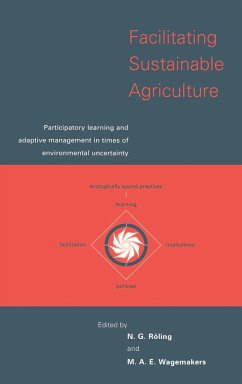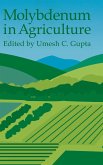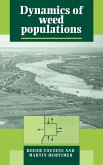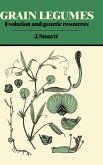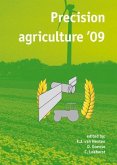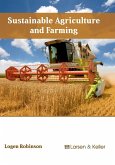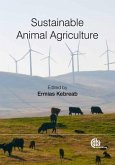A move towards more flexible, sustainable agricultural practices is increasingly being seen as the way to address or avoid environmental and economic problems associated with existing, predominantly intensive, farming systems. Through case studies taken from around the world, this book examines the implications of adopting more ecologically sound agricultural practices, both at the level of individual farmers and at the level of larger-scale agro-ecosystems such as water catchments. The emphasis of the book is on human and social aspects, rather than on agronomic or economic considerations, focusing on the learning processes necessary for change to be implemented and, in turn, on the facilitation of that learning through participatory approaches and appropriate institutional support and policy structure.
Table of contents:
Preface; Part I. Introduction: 1. A new practice: facilitating sustainable agriculture N. Röling and A. Wagemakers; 2. Supportive policies and practices for scaling up sustainable agriculture J. Pretty; 3. The second wing of the eagles: the human dimension in learning our way to more sustainable futures J. Woodhill and N. Röling; Part II. Environmental Policies and Farmers' Reactions: 4. Developing standards for sustainable farming in the Swiss Alps M. Roux and A. Blum; 5. Extension functions and farmers' attitudes in Greece A. Koutsouris and D. Papadopoulos; 6. Integrated arable farming in the Netherlands W. van Weperen, M. Proost and N. Röling; Part III. Farmer Learning, Its Facilitation and Supportive Institutions: 7. Learning about sustainable agriculture: the case of Dutch arable farmers; 8. The diffusion of eco-farming in Germany A. Gerber and V. Hoffmann; 9. Transforming extension for sustainable agriculture: the case of integrated pest management in rice in Indonesia N. Röling and E. van de Fliert; 10. Co-learning tools: powerful instruments of change in southern Queensland, Australia G. Hamilton; 11. A social harvest reaped from a promise of springtime. User-responsive, participatory agricultural research in Asia G. T. Castillo; Part IV. Platforms For Agricultural Resources Use Negotiation: 12. Integrated farming systems: a sustainable agriculture learning community in the USAJ. Fisk, O. Hesterman, and T. Thorburn; 13. Fomenting energy: experiences with facilitating landcare in Australia A. Campbell; 14. The implementation of nature policy in the Netherlands: platforms designed to fail M. Wagemans and J. Boerma; 15. The communication between farmers and government over nature: a new approach to policy development C. van Woerkum and M. Aarts; Part V. Synthesis: 16. The ecological knowledge system; About the authors; List of figures; Tables; Boxes; List of abbreviations and acronyms; Index.
A unique examination of the implications of adopting more ecologically sound agricultural practices. Human and social aspects are emphasised, focusing on the learning processes necessary for change to be implemented and, in turn, on the effective facilitation of that learning.
A unique examination of the social implications of adopting more ecologically sound agricultural practices.
Hinweis: Dieser Artikel kann nur an eine deutsche Lieferadresse ausgeliefert werden.
Table of contents:
Preface; Part I. Introduction: 1. A new practice: facilitating sustainable agriculture N. Röling and A. Wagemakers; 2. Supportive policies and practices for scaling up sustainable agriculture J. Pretty; 3. The second wing of the eagles: the human dimension in learning our way to more sustainable futures J. Woodhill and N. Röling; Part II. Environmental Policies and Farmers' Reactions: 4. Developing standards for sustainable farming in the Swiss Alps M. Roux and A. Blum; 5. Extension functions and farmers' attitudes in Greece A. Koutsouris and D. Papadopoulos; 6. Integrated arable farming in the Netherlands W. van Weperen, M. Proost and N. Röling; Part III. Farmer Learning, Its Facilitation and Supportive Institutions: 7. Learning about sustainable agriculture: the case of Dutch arable farmers; 8. The diffusion of eco-farming in Germany A. Gerber and V. Hoffmann; 9. Transforming extension for sustainable agriculture: the case of integrated pest management in rice in Indonesia N. Röling and E. van de Fliert; 10. Co-learning tools: powerful instruments of change in southern Queensland, Australia G. Hamilton; 11. A social harvest reaped from a promise of springtime. User-responsive, participatory agricultural research in Asia G. T. Castillo; Part IV. Platforms For Agricultural Resources Use Negotiation: 12. Integrated farming systems: a sustainable agriculture learning community in the USAJ. Fisk, O. Hesterman, and T. Thorburn; 13. Fomenting energy: experiences with facilitating landcare in Australia A. Campbell; 14. The implementation of nature policy in the Netherlands: platforms designed to fail M. Wagemans and J. Boerma; 15. The communication between farmers and government over nature: a new approach to policy development C. van Woerkum and M. Aarts; Part V. Synthesis: 16. The ecological knowledge system; About the authors; List of figures; Tables; Boxes; List of abbreviations and acronyms; Index.
A unique examination of the implications of adopting more ecologically sound agricultural practices. Human and social aspects are emphasised, focusing on the learning processes necessary for change to be implemented and, in turn, on the effective facilitation of that learning.
A unique examination of the social implications of adopting more ecologically sound agricultural practices.
Hinweis: Dieser Artikel kann nur an eine deutsche Lieferadresse ausgeliefert werden.

